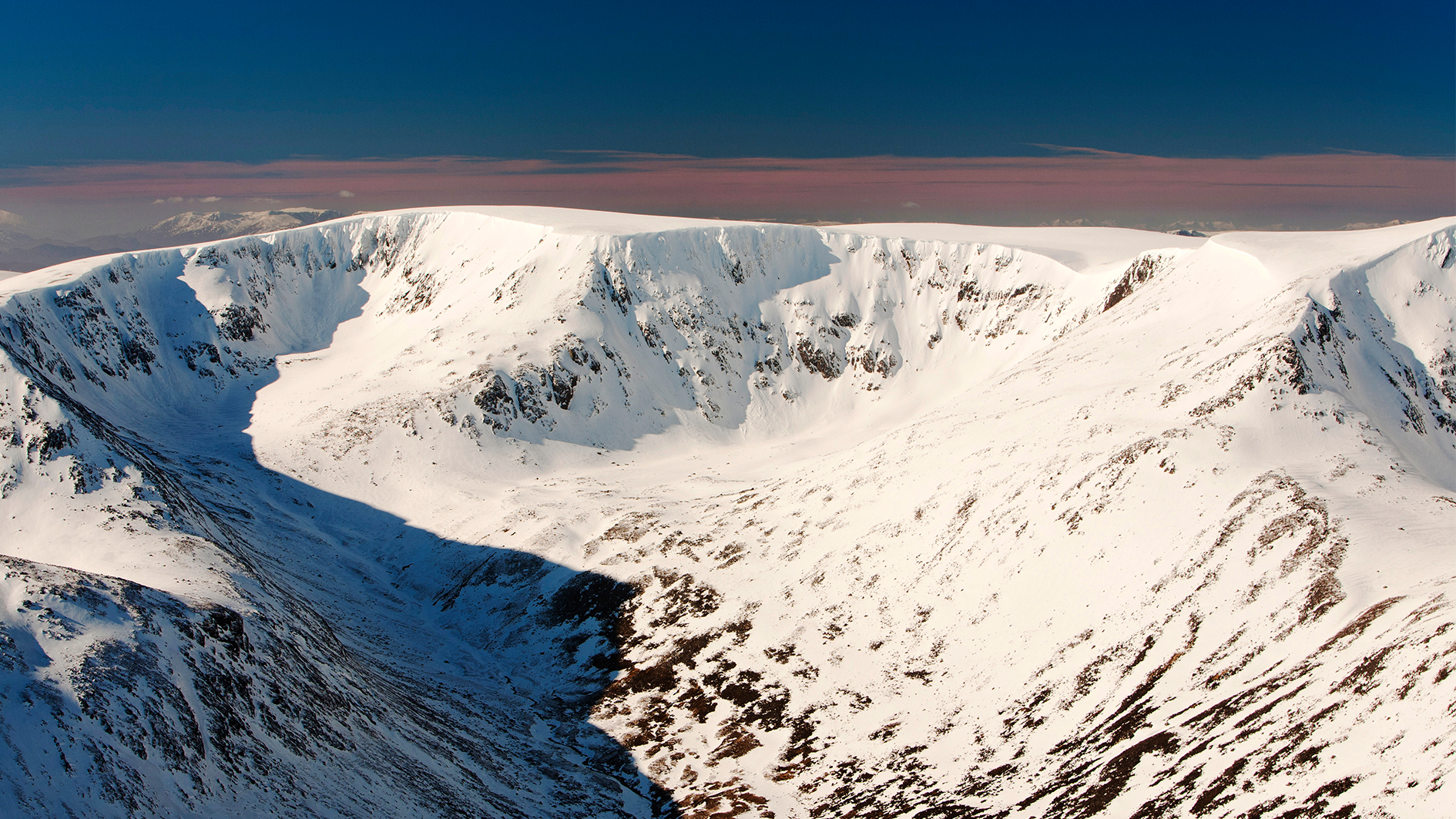
Two lost and confused hikers were rescued in freezing conditions in Scotland's Cairngorms National Park, only hours after they'd turned down help from mountain rescue officials.
The night before, the pair were hiking in the mountainous Ben MacDui area when they became cold and disorientated, contacting the Cairngorms Mountain Rescue Team for assistance.
Multiple volunteers mustered at the CMRT base and prepared for action. However, upon learning that a rescue would take more than three hours, the stranded hikers opted to wild camp instead and trek back to safety the next morning.
"We said we could get them off the hill now if one of them had hypothermia and he said, ‘No, no - I don’t want to be rescued’," CMRT deputy leader Willie Anderson told the Ross-Shire Journal.
"If someone doesn’t want to be rescued, we can’t rescue them, so we left them."
Things didn't exactly go to plan for the hikers though. The following morning (Wednesday, January 29), they became lost on the same plateau they'd camped on, and called mountain rescue for a second time.
Volunteers responded swiftly and were able to pinpoint the hikers' location and escort them safely back to base by 2.30pm.
Anderson was irked by the situation, slamming the pair as "completely out of their depth and using the emergency services as a prop, almost".
Posted by cairngormmrt on
Ben Macdui is the second-highest mountain in Scotland behind Ben Nevis, standing 4,295 ft / 1,309m tall. It's one of Scotland's 282 'Munro' mountains, which boast summits over 3,000ft / 914m high.
These mountains are often unforgiving in the winter months, with temperatures dropping well below freezing at night, heavy rainfall and strong winds are also common.
Munro Hiking Advice
If you're thinking of tackling a Munro this winter, make sure to prepare well in advance and take a look at our top tips.
- Wear insulating, rainproof clothing. Prepare for the freezing temperatures with clothes capable of keeping you warm and dry on the mountain, including a waterproof jacket and trousers, a sweat-wicking baselayer, and an insulated mid-layer, like fleece jacket or down jacket.
- Wear the right footwear. Conditions underfoot can be treacherous in the Scottish Highlands, especially in winter when snow covers uneven ground. Make sure you're prepared with a protective, grippy pair of hiking boots like the Scarpa Manta Tech GTX. A dependable pair of crampons is also non-negotiable, needed for steep and snowy high-altitude sections.
- Make sure you can navigate - trustworthy GPS devices can keep you on track and help to avoid dangerous areas, you should also learn how to read a map and use a compass, should modern technology fail.
- Have a means of calling for help - satellite communicators like the Garmin InReach aren't dependent on cell signals, so can be used in remote locations to send an SOS signal.
- Take plenty of food and hydration - nutrition is essential for winter ascents, so ensure you've got enough energy with an adequate supply of fluids and snacks. Water bottles and hydration bladders can often become frozen in chilly conditions, so it’s a good idea to take an insulated flask of hot water or tea.
- If you're thinking of camping, consider a four-season tent like the Hilleberg Akto, which boasts additional insulation to keep you toasty in the night.
For more on winter hiking advice, check out our expert guide.
- The best lightweight hiking boots and shoes: pick up speed on the trails and stay agile on your scrambles
- The best hiking pants: don't let winter slow you down with our top trail trousers







